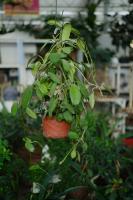Can Plastic Plant Pots be Recycled?
Plastic plant pots are popular among gardeners for their durability and affordability. However, their disposal can lead to environmental pollution, which raises concerns about the possibility of plastic plant pot recycling. In this article, we will explore the recycling potential of plastic plant pots.
The Challenge of Recycling Plastic Plant Pots
Recycling plastic plant pots can be challenging due to the mixed materials they contain. Most plastic pots are made from polypropylene, a type of plastic that is not widely accepted by recycling facilities. Moreover, plastic plant pots come in various shapes and sizes, which can complicate the recycling process. Sorting plastic pots by size and shape is a time-consuming process that may not be economically feasible for many recyclers.
The Recycling Process of Plastic Plant Pots
The recycling process of plastic plant pots involves shredding them into small pieces or granules, followed by melting and reforming them into new products. The recycling process requires energy and resources, which makes it less environmentally friendly than reducing, reusing, or donating plastic pots. However, recycling plastic plant pots can prevent them from ending up in landfills or oceans, reducing their negative impact on the environment.
Alternatives to Recycling Plastic Plant Pots
Reducing the number of plastic plant pots we use and reusing them is a more sustainable approach than recycling. Gardeners can reuse plastic pots for several seasons, or consider using biodegradable plant pots made from materials like coconut coir, rice husks, or cornstarch. Biodegradable plant pots are made from organic materials that break down naturally, reducing the need for recycling or disposal. Some garden centers accept used plastic pots for reuse or recycling, making it easier for gardeners to dispose of them responsibly.
The Importance of Responsible Disposal
Regardless of whether plastic plant pots can be recycled, responsible disposal is essential to minimize their impact on the environment. Dumping plastic pots in landfills can contribute to the depletion of natural resources and create greenhouse gas emissions. Moreover, plastic pots that end up in oceans, lakes, or rivers can harm marine life and pollute water sources. Gardeners can reduce the environmental impact of plastic pots by disposing of them responsibly, reusing or donating them, or choosing biodegradable alternatives.
In Conclusion
While plastic plant pots can be recycled, their recycling potential is limited due to the mixed materials they contain, which makes sorting and processing them difficult. Landfill disposal of plastic pots can harm the environment, making responsible disposal essential. Gardeners can reduce the environmental impact of plastic pots by reducing their usage, reusing or donating them, and choosing biodegradable alternatives. Ultimately, responsible consumption and disposal are key to creating a more sustainable future.

 how many times do yo...
how many times do yo... how many planted tre...
how many planted tre... how many pine trees ...
how many pine trees ... how many pecan trees...
how many pecan trees... how many plants comp...
how many plants comp... how many plants can ...
how many plants can ... how many plants and ...
how many plants and ... how many pepper plan...
how many pepper plan...































